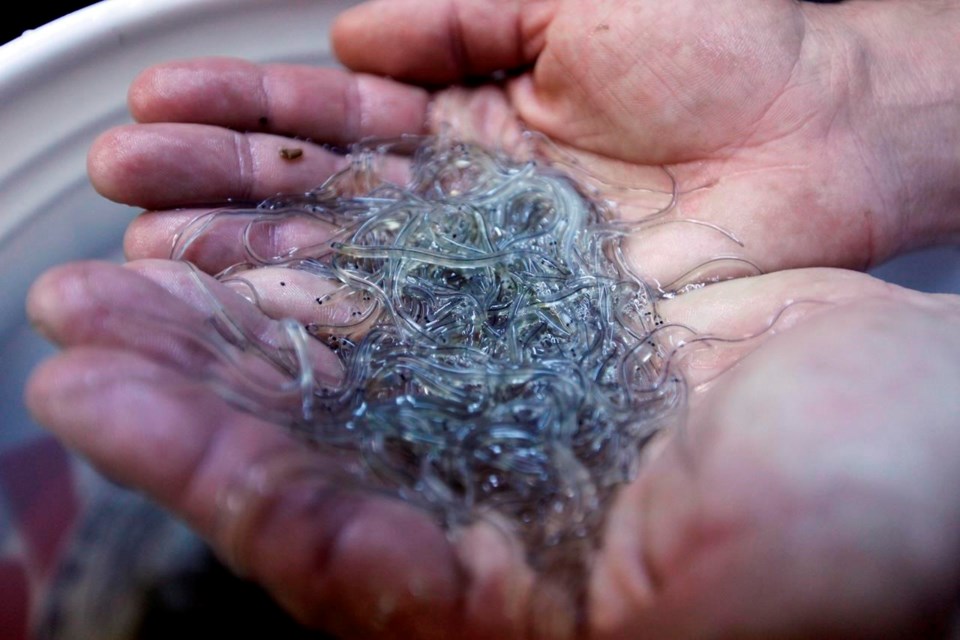HALIFAX — The federal Fisheries Department is remaining silent while it reviews last week’s court ruling that affirms Ottawa’s decision to transfer part of the lucrative Maritimes elver fishery quota in 2022 to First Nations fishers.
In an emailed response, the department declined to comment on the Federal Court ruling, which rejected an application by three commercial elver licence holders who were seeking a judicial review of the minister's quota transfer.
“The department welcomes the Federal Court’s decision and we are conducting a thorough review of the findings,” said the department. “Because this decision is subject to an appeal process it would be inappropriate to comment further at this time.”
In her Aug. 29 ruling, Justice Elizabeth Walker said the quota transfer was “fair and reasonable'' given the broad discretion the fisheries minister has to manage Canadian fisheries.
Former federal fisheries minister Joyce Murray cut the commercial quota for baby eels — also known as elvers — by about 14 per cent to give Indigenous fishers access to the fishery in recognition of a treaty right. Commercial fishers decried the decision because they weren't compensated, questioning whether Ottawa was moving away from the willing buyer, willing seller model, in which someone exits the commercial fishery through a buyout of his or her licence.
“Fisheries and Oceans Canada (DFO) is committed to working with First Nations to advance and uphold inherent and treaty rights and to increasing access in the fisheries … DFOs preferred approach remains, willing buyer – willing seller,” said the department, although it did not elaborate.
In an interview Friday, lawyer Michel Samson, who represents Wine Harbour Fisheries, a Nova Scotia licence holder who was part of the case, said the court’s decision leaves the door open to “arbitrary” cuts to quotas in other sectors of the industry, such as the lobster fishery.
However, the ruling noted that the elver quota transfer came after negotiations to buy out the existing licence holders were discontinued. The judge also said the substance of her decision was a “licensing decision applicable solely to the 2022 elver fishing season.”
Rick Williams, a former deputy minister of policy and priorities with the Nova Scotia government who advises fish harvester organizations, said he doesn’t think the ruling will lead to forced quota transfers in other fisheries.
“There’s a certain amount of gamesmanship going on here and it’s quite specific to this (elver) fishery,” Williams said.
Author of the book "Contested Waters: The Struggle for Rights and Reconciliation in the Atlantic Fishery," Williams said elver fishing is unique and regulations around the industry can't easily apply to other fisheries.
Ottawa has issued nine licences for elver fishing on rivers in Nova Scotia and New Brunswick — with a total quota of 9,960 kilograms that has been in place since 2005. The American eel was designated as threatened by the Committee on the Status of Endangered Wildlife in Canada in 2012.
The contentious fishery was shut down by federal officials this year over safety and conservation concerns amid complaints about growing violence and intimidation due to unauthorized fishing.
Williams said ease of access and the low capital cost of participating in the elver harvest pose continuing problems “from a management point of view.”
“There’s a good reason why … DFO doesn’t just simply issue more licences in order to give First Nations access,” he said. “They are trying to limit the harvest to protect the fish stock by only reallocating existing quota.”
This report by The Canadian Press was first published Sept. 5, 2023.
Keith Doucette, The Canadian Press



